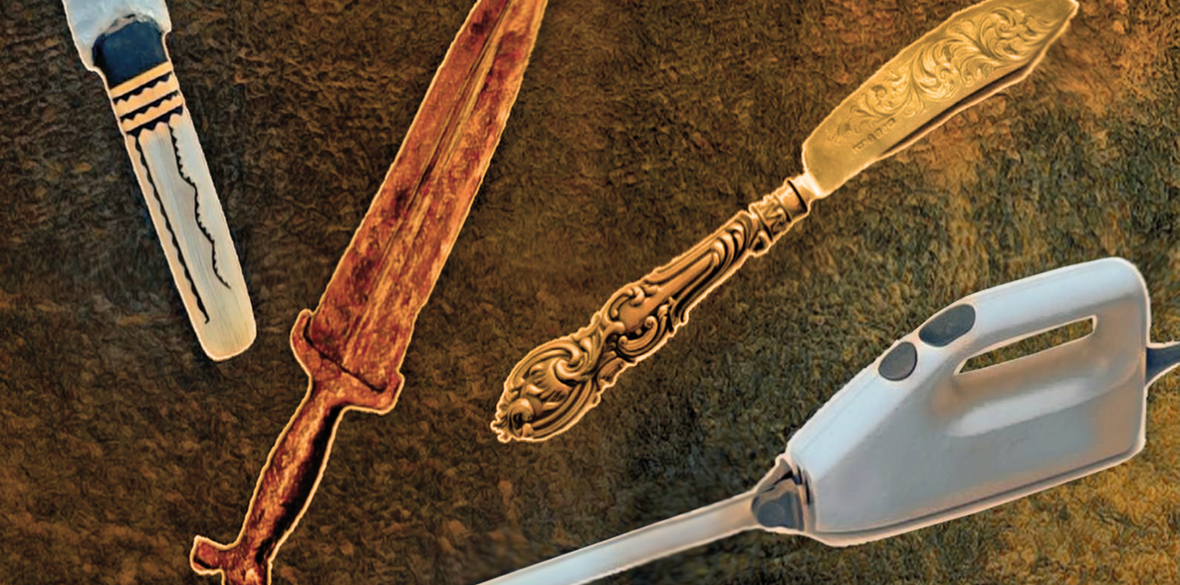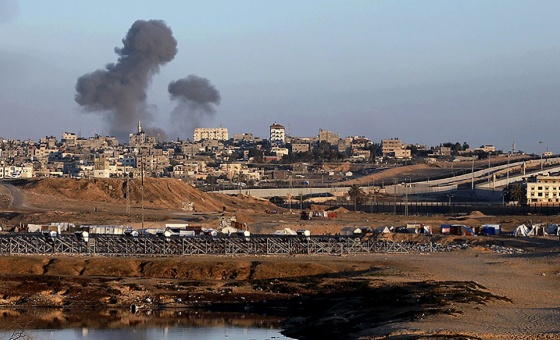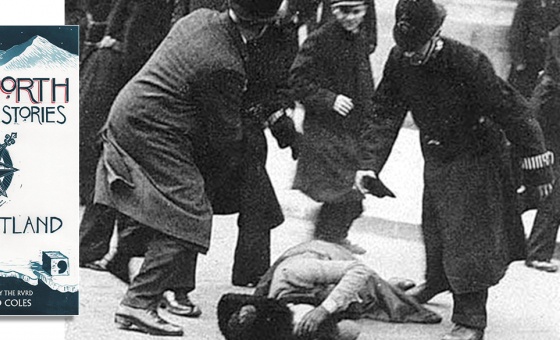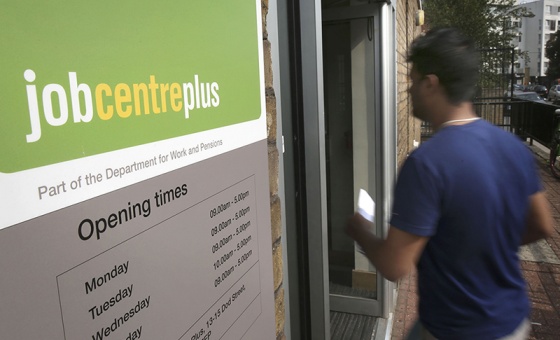This is the last article you can read this month
You can read more article this month
You can read more articles this month
Sorry your limit is up for this month
Reset on:
Please help support the Morning Star by subscribing here
LET’S start with the “production” bit first. In common with other animals, people need food and shelter to survive.
But unlike most other animals, even in the earliest human societies many of the necessities of life couldn’t be found ready-made in nature. They had to be made — “produced.”
Material production has always been the basis of human existence without which everything else in society — ideas, knowledge, science, religion, even language — would not exist.
In all human societies of which we have any knowledge, these products — we could also call them “goods” or “services” because they have what Marx called a “use-value” — are created through work.
That was true even of the earliest human societies: indeed it was one of the mechanisms for our own evolution as a species, something first proposed by Engels in his essay The Part Played by Labour in the Transition from Ape to Human.
The “forces of production” (or “productive forces”) are the ways and means by which goods and services are produced — what we humans (collectively) do for a living at every stage in history — how food, clothes and buildings are made; what we eat, what we wear; how we are housed.
This includes the “means of production” (sometimes called “productive capital”) — land, tools, machines, computers, factories, and offices, usually expanded to include distribution and exchange — transport, shops and infrastructure. The forces of production include human labour power. And they include the knowledge, skills and technologies that underpin its application.
But these forces of production do not exist in isolation from the society of which they are a part.
All labour is social in character — even the lone craftsperson has to interact with others, acquire knowledge and skills, secure raw materials and tools, to sell the products — and every society features characteristic “relations of production” and of distribution and exchange.
These include technical relations — where raw materials come from, who makes the tools or machines that are used, how the products are distributed or sold.
Most importantly, it includes the economic relationships — who owns and controls these means of production, distribution and exchange (tools, machinery, computers, lorries, factories, shops…) and whether the worker, without whom no goods and services would exist, is a slave, a serf, an employee, self-employed (genuine or phoney) or indeed (in the case of small businesses) the owner.
The relations of production are interactions between people whereas the forces of production are primarily interactions between people and things. Both are interrelated and they change over time.
One of the tasks of the Marxist historian is to investigate these relationships and how change happens. This was indeed the task that Marx set himself.
He concluded that while the forces of production are dynamic and constantly changing, the relations of production tend to be more conservative, if only because they are protected by a state that, ultimately, represents the interests of the owners of the means of production; the “ruling class.”
The forces and the relations of production are always in tension, and sometimes they are in open conflict.
As Marx declared: “At a certain stage of development, the material productive forces of society comes into conflict with the existing relations of production or (this merely expresses the same thing in legal terms) with the property relations within the framework of which they have operated hitherto.
“From forms of development of productive forces these relations turn into their fetters. Then begins an era of social revolution.”
Today the most dynamic of these forces have to do with computing, information technology, artificial intelligence and cybernetics.
Some pundits on the left claim that these will automatically usher in a “postcapitalist” (some, even, a “communist”) society and that class struggle is obsolete and unnecessary.
Most Marxists, by contrast, would point out that far from improving the quality of life for “the many,” these technologies are increasingly used as a means of social control and profit — in the workplace, in the media, and in their military applications and through the applied obsolescence of consumer gadgetry, all at enormous social and environmental cost — and that they make the struggle for a better world — a new “mode of production” — increasingly urgent.
Marx used the term “mode of production” to describe a specific combination of particular forces and relations of production together with their associated institutional, legal and political structures.
He identified a number of modes of production that have arisen over the course of human history: principally primitive communism, slavery, serfdom and wage labour. Each of them, Marx declared, “May be designated as epochs marking progress in the economic development of society.”
Each of these stages contains internal tensions or contradictions including struggles between different interests (feudal lords and serfs; landowners and capitalists; capitalists and workers) which act as drivers of change and eventually to a shift to another mode of production and associated socio-political structures.
Perhaps the most studied of these shifts in Britain is the transition from feudalism to merchant capitalism to industrial capitalism.
But Marx’s qualification “in broad outline” is important. The sequence is a conceptual framework, rarely met in practice (although some European countries roughly conform to it) which provides a tool to examine what happens in particular places at different times.
As Eric Rahim declares, it was “not intended by Marx to describe social reality; nor was it a model from which social reality can be deduced. It was a conceptual framework or a model used as a guide to interpreting reality — historical development and, in particular, the working of the capitalist mode of production.”
David McLellan puts it even more strongly: “Historical development does not follow a definite pattern in which, through some internal necessity, one mode of production inevitably follows from the previous one.”
Different relations of production can coexist; wage labour existed in some ancient slave societies and also in some feudal societies dominated by serfdom.
In the United States before the civil war, slavery was part of a system intimately linked to the development of European capitalism.
In China today there are both socialist and capitalist relations of production within a society whose overall mode of production is avowedly moving towards socialism. And (as the collapse of “existing socialism” in the Soviet Union demonstrated) changes can be reversed.
Marx’s “epochs” are historical periods in which one mode of production was dominant even though others were present.
Perhaps it would be clearer to describe these stages of development, as Marx sometimes did, as distinct “social formations,” or as “economic systems.”
History is not teleological, working inexorably to some kind of inevitable or necessary endpoint; change is driven by internal contradictions and external influences and human action is central to both.
Moving from an understanding of history to trying to make it, it is perhaps clearer today than in any time in recent history that the relations of production within capitalism contain fundamental contradictions which prevent the satisfaction of human needs and which increasingly threaten to destroy our planet.
There is a growing awareness of the need for a better mode of production — socialism — which itself could lay the basis for a future communist society.
Such a perception provides a challenge to us all, not just to interpret the world, but to change it. It’s up to us.
The Marx Memorial Library’s winter programme kicks off on Thursday January 12 with a documentary film screening Stop Fire and Rehire with Barry Gardiner MP chaired by Lord John Hendy KC. An eight-week online course on Capitalism, Crisis and Imperialism starts on January 17, followed by another, Making Our Own History on January 24, taught by Jonathan White whose recent book Making Our Own History — A User's Guide to Marx's Historical Materialism is obtainable (at a reduced price) from the library. Membership of the library will also give you access to articles by Eric Rahim and David McLellan (and many others) in the Library’s journal Theory and Struggle (www.marx-memorial-library.org.uk).












